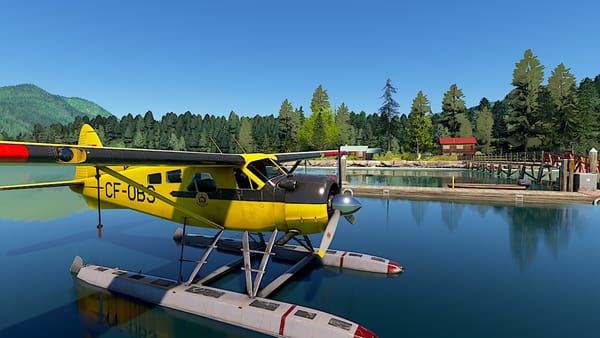The Flight of Fellowship

Paying homage to a digital friend. To a man who seeks answers to questions more of us should be asking.
Sitting in the virtual cockpit of a Cessna 152, Mike prepared to depart from Puerto Rico’s East L Grande Airport in Microsoft Flight Simulator 2024. The sun was beginning to rise over the Caribbean, casting golden light over the airstrip and surrounding trees. He methodically worked through the pre-flight checks—fuel valves, flaps, avionics. To an outsider, it may have seemed like just another flight simulation, but for Mike, this flight was part of something deeper.
As the tiny aircraft lifted into the clear blue sky, Mike couldn't help but admire the island’s beauty from above—its lush hills, coastline, and sparkling ocean. Yet, even in this peaceful digital space, his mind wandered to a more troubling question:
Could something as simple as flight simulation actually help make the world a better place?
It was a bold and poignant question—one that had been on his mind for a while. The world, after all, felt increasingly divided. From street-level violence to large-scale wars, conflict seemed to surround humanity. Mike thought back to a few intense experiences of his own—once being threatened with a knife, and another time narrowly avoiding a shooting. But those dark moments were only part of the picture.
He also remembered the good—like the waitress in a small-town diner who went out of her way to make him feel welcome, or the countless strangers who had shown him kindness over the years. These contrasting experiences painted a fuller picture of human nature: complex, messy, but not without hope.
Mike had lived in both quiet towns and bustling cities, and each place had taught him something new about people. Through it all, one thing remained clear to him—everyone wants to be seen, heard, and understood.
As he climbed higher in the simulator, Mike’s thoughts returned to his YouTube channel. What had started as a hobby had turned into a community. People from around the world—viewers from Ukraine, Russia, Brazil, Germany—had found their way to his videos. They shared stories, left kind comments, and even joined in flights. Political tensions didn’t seem to matter here. For a moment, in a virtual sky, people who might never speak in real life were flying together, helping each other navigate both planes and perspectives.
Mike wasn’t naive. He understood that global problems couldn’t be solved by simply logging into a game. Still, he believed that connection—real, meaningful connection—often started in small, unexpected places. For him, flight simulation had become one of those places.
His own ties to both Ukraine and Russia gave his reflections more weight. The war between those nations was personal, painful, and complicated. Yet, through flight simulation, he had managed to interact respectfully with people from both sides. It didn’t erase the conflict, but it opened a door to conversation, and sometimes that’s the most powerful thing we can do.
As the Cessna levelled off, cruising peacefully above the island, Mike imagined a world where more people could see each other through a shared lens—not of politics or power, but of curiosity and care. Flight simulation, for all its technical detail and realism, was also a metaphor. It reminded him that we all have different points of departure, but maybe, just maybe, we’re heading toward a shared destination.




